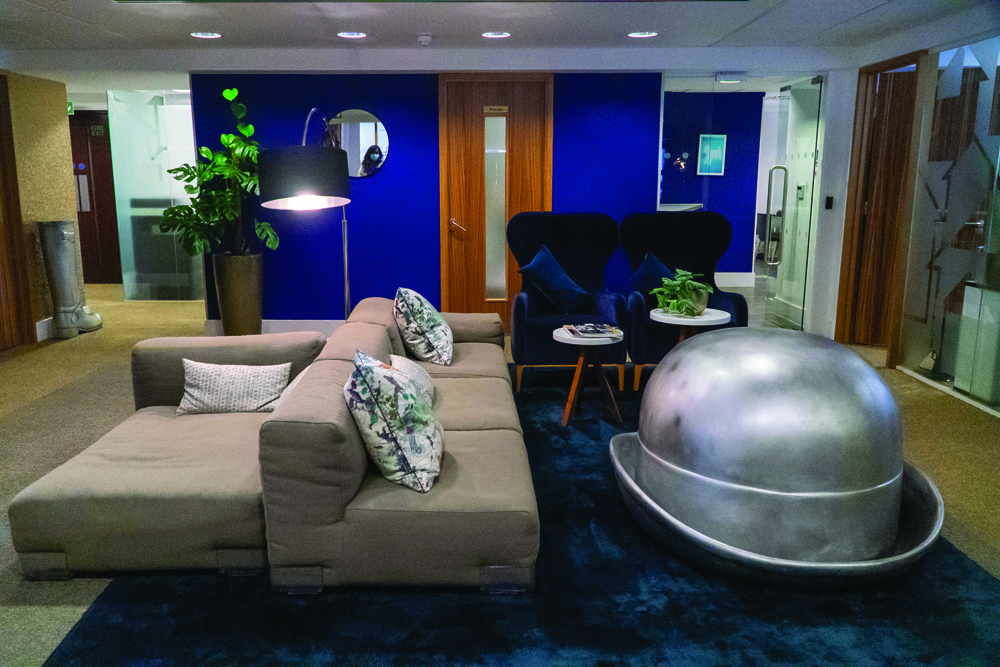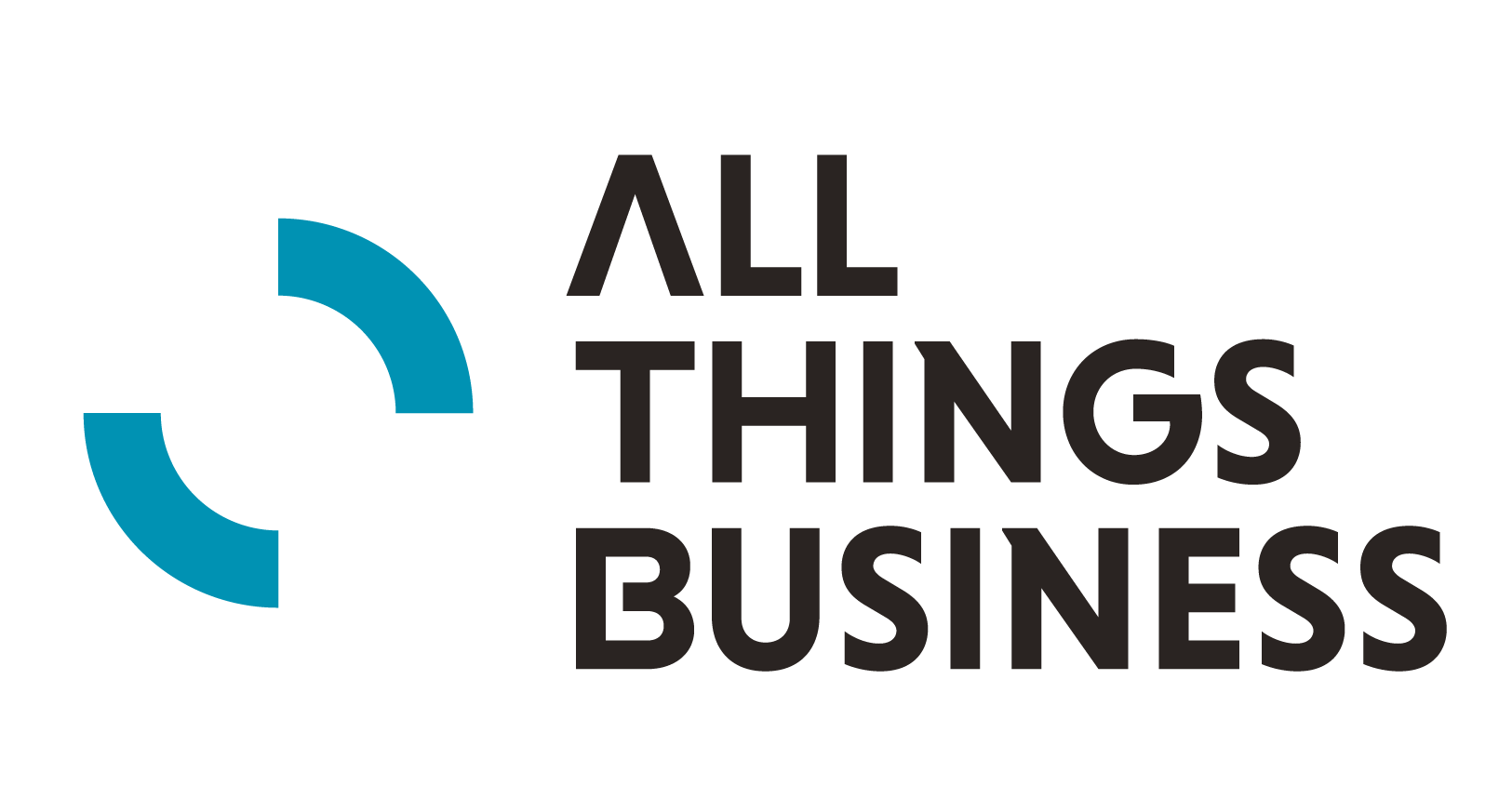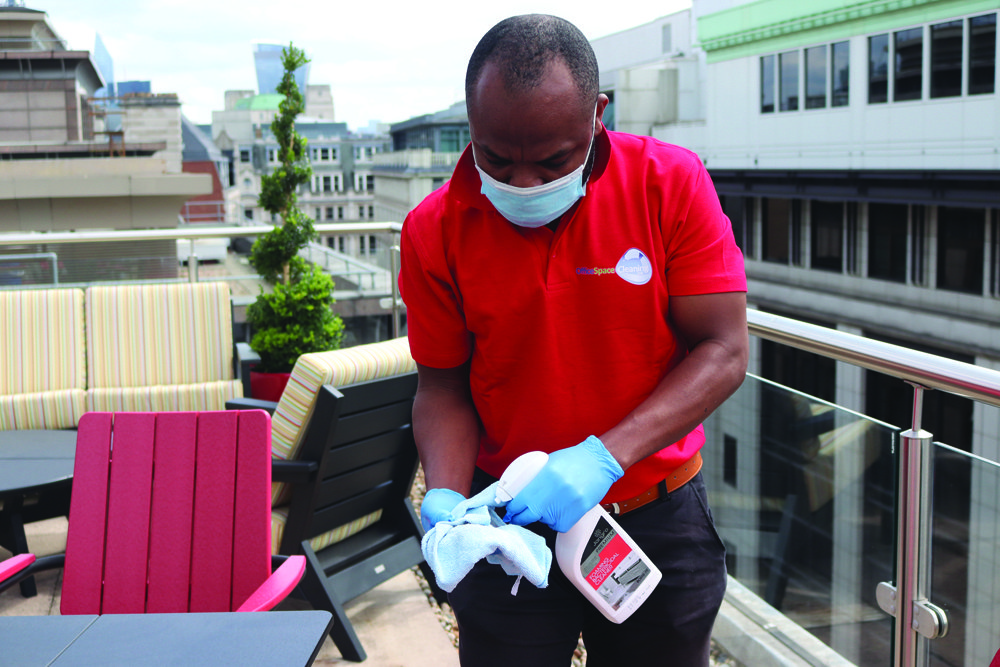James Carver, Managing Director at leading workspace cleaning and hygiene firm, Office Space Cleaning Facilities Management (OSCFM), reflects on the challenges faced by facilities management over the last couple of years, challenges that have defined the current state of the sector. He considers the latest innovations that FMs need to tap into when navigating the future.
What is the current state of FM, and what have been the biggest challenges faced by the industry over the last few years?
As with all sectors, it has been a fast-evolving couple of years for Facilities Managers. The role of the office has changed in many ways, and FMs have understandably faced challenges catering to the new demands of workers who, alongside flexibility and convenience, are now expecting their work facilities to be of a higher standard.
One of the key areas for development in the sector is the growing focus on green buildings, and the need to increase efforts to create more environmentally friendly spaces. There are many ways for businesses to pivot to more sustainable design, including tapping into biophilic choices, investing in eco-friendly furniture, and reducing workplace plastic.
Beyond this, the pandemic has accelerated the digitalisation of the built environment – with technology having a bigger part to play in ensuring that facilities can be optimised to run as smoothly and efficiently as possible. The drive towards a more sustainable and technologically advanced FM sector is what will frame the growth of the industry in the years to come.
What are the biggest FM innovations for 2022?
Now more than ever, technology and data are what drives our workspace or the way in which we should strive to use it. For example, the development and implementation of touchless access control systems has been accelerated to avoid unnecessary contact with shared surfaces, like door handles or PIN code entry systems.
And with the normalisation of alternative workstyles, like hybrid and remote working, technology that monitors footfall analytics can also be used to create a more sustainable and efficient workspace. Many offices are now using footfall sensors which identify under-occupied areas and enable better use of them – by adjusting temperature and lighting settings.

What do you think is most overlooked by most operators in most FM practices?
The higher expectations of workers, paired with the increased pressure on FMs to provide well-maintained facilities, highlight that it is time for workplace hygiene to take centre stage. In fact, recent research has revealed that 10 million bacteria live on a desk – making it 400 times dirtier than the average toilet seat. With these sorts of figures in mind, FMs should be quick to make cleaning a top priority.
And with 69% of Britons more conscious than ever about cleanliness, it will be up to a business’s cleaning team to alleviate the concerns of workers over health and safety measures. Beyond this, the British Cleaning Council’s 2021 annual report revealed that the cleaning industry employs 957,000 people and contributes over £55.5bn to the UK’s economy – emphasising that prioritising cleaning practices can help FMs to meet the hygiene-related needs of the UK’s workforce, and is integral for the job market and economy as a whole.
What are your three biggest recommendations for FMs to tackle the changes to the FM sector?
To consider workers and their changing demands: with 55% of hybrid employees and 50% of remote workers feeling lonelier at work than before working from home became the norm, it is important to consider the health and wellbeing benefits of having a clean office space, and how this can be a massive driving factor in encouraging people to return to the office.
Tapping into sustainable choices: with many workers considering a firm’s social and environmental commitments when deciding where to work, it is more important than ever for FMs to be vigilant in keeping sustainability at the forefront of their minds. It is not difficult to implement more eco-friendly choices, for example: using products that are reusable and recyclable, and avoiding water wastage, are all simple ways to get started
Being open minded and adaptable to different workstyles: amidst the development of new workstyles and patterns – hybrid working, remote working and activity-based working – the FM sector must be open minded and adapt its practices to the changing working environment. Tapping into new technology and data-driven analytics will place FMs in good stead for the future.
Do you have any advice for FMs and cleaning teams?
As the FM sector enters a new, innovative era that prioritises technological efficiency and sustainability, it is important to remember that the sector is, and always will be, ultimately people-led. The cleaning teams and FMs that make up the industry are essential to the delivery of high-quality service. Therefore, continuing to treat FM workers and cleaners with the fairness and respect they deserve is paramount to the success of our industry.
Find out more about the services offered by Office Space Cleaning & Facilities Management at www.officespacecleaning.co.uk or call 020 3795 2400.
This article first appeared on the Facilities Management website www.fmuk-online.co.uk

Managing Director at Office Space Cleaning

